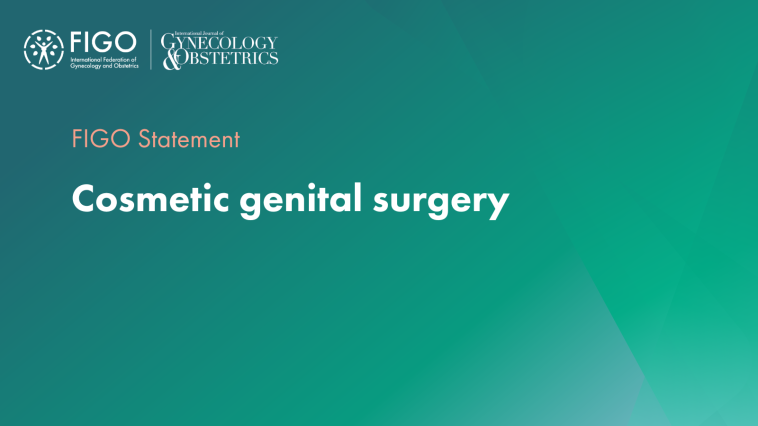Ethical concerns in female cosmetic genital surgery

Cosmetic genital surgeries in women—such as labiaplasty, clitoral hood reduction, hymenoplasty, vaginoplasty, and laser-based procedures—have seen a notable rise in popularity in recent years. In response, the FIGO Committee for Ethical Aspects of Human Reproduction and Women's Health has published a new statement in the International Journal of Gynecology & Obstetrics (IJGO), raising serious ethical, medical and societal concerns. The committee calls for increased caution and better-informed patient care.
Recommendations include:
- Ensuring patients understand that cosmetic genital procedures are not medically indicated.
- Educating about natural variations in genital anatomy.
- Screening for underlying psychological issues such as body dysmorphic disorder.
- Avoiding surgical interventions in adolescents unless thoroughly justified.
- Promoting transparency in marketing and discouraging misleading claims.
“Cosmetic genital procedures are ethically permissible if four ethical criteria outlined by FIGO are met; (1), it is not medically necessary, (2), there is evidence-based clinical validation proving the procedure’s safety and effectiveness, (3), risks and complications should be minimised, (4), the patient must provide informed and voluntary consent.
Due to the lack of strong evidence supporting the claim that cosmetic genital surgery is safe and effective, the second criterion is not fulfilled. Consequently, FIGO asserts that it is ethically inappropriate for obstetrician gynaecologists to recommend, perform or refer patients for these procedures."
Dr Lourdes Capito, Lead Author
The statement emphasises that these procedures are not medically necessary and often carry risks including infection, dissatisfaction with outcomes and changes in sexual function. Key ethical principles such as autonomy, non-maleficence and justice are also explored in depth. While respecting a woman's right to make decisions about her body is vital, the paper highlights how societal pressures can distort autonomous decision-making. The potential for physical harm, psychological distress and widened health disparities—especially among adolescents—requires cautious, ethical consideration.
This comprehensive review urges clinicians to prioritise evidence-based care, accurate information, and ethical responsibility over commercial interests. By doing so, healthcare professionals can help women make truly informed decisions while protecting their physical and psychological well-being.
Read the full article in IJGO to explore the detailed analysis and ethical guidance provided by FIGO and global partners.